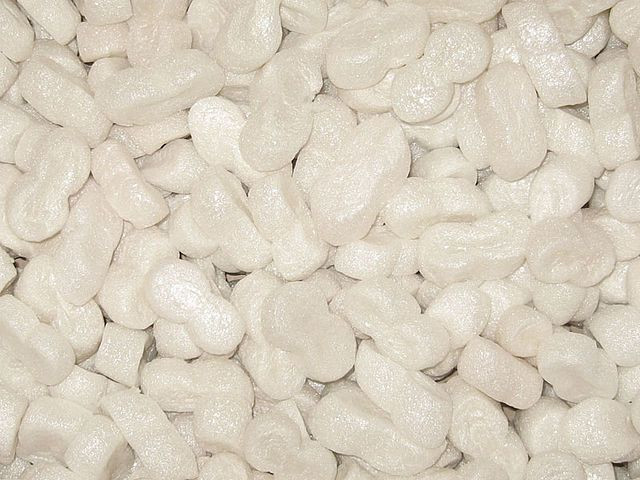Foam Packing Peanuts May Hold Key To Better Smartphone Batteries

Researchers have discovered a new way to convert Styrofoam packing peanuts into a usable energy source -- namely, a component of quick-charging lithium batteries. The discovery could possibly reduce the price of smartphones as well as help curb waste.
Purdue University researchers Vilas Pol and Vinodkumar Etacheri’s method calls for heating the peanuts to between 500 degrees and 900 degrees Celsius. The leftover material is then used to create highly efficient anodes, an essential part of lithium batteries. The researchers envision a process in which consumers could send leftover packing to suppliers and manufacturers, where they would receive the treatment.
The research will be presented at the American Chemical Society National Meeting and Exposition, which started this week and runs through March 26.
“Although packing peanuts are used worldwide as a perfect solution for shipping, they are notoriously difficult to break down, and only about 10 percent are recycled,” Pol said in a statement announcing the findings. “Due to their low density, huge containers are required for transportation and shipment to a recycler, which is expensive and does not provide much profit on investment.”
Both experts cautioned that there's still more work to be done, but early signs are encouraging.
“Long-term electrochemical performances of these carbon electrodes are very stable,” Etacheri said in the statement. “We cycled it 300 times without significant capacity loss. These carbonaceous electrodes are also promising for rechargeable sodium-ion batteries.”
© Copyright IBTimes 2024. All rights reserved.





















